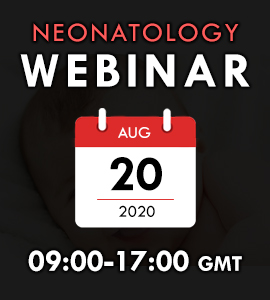Noormah Mehmood
Driscoll Childrens Hospital, USA
Title: Impact of the use of the Beanie on the neurodevelopmental outcomes of preterm infants with Plagiocephaly
Biography
Biography: Noormah Mehmood
Abstract
Introduction: Deformational Plagiocephaly (DP) is the abnormal flattening of the skull. DP has been associated with abnormal brain shape and worse neurodevelopmental outcomes on the Bayley Scales of Infant and Toddler Development-III (BSID-III). In 2009, the FDA approved a repositioning Beanie for prevention of flat head.
Purpose: To assess the impact of the use of the Beanie on neurodevelopment of preterm infants with DP admitted in the NICU using the BSID-III.
Methods: Retrospective chart review was performed between January 2013-2017. Infants less than 32 weeks gestational age, under 1500g birth weight and attending high risk follow-up clinic were included. Patients with congenital cardiac defects, hypoxic ischemic encephalopathy and severe neurologic impairment were excluded. The Beanie was used for patients diagnosed with DP. BSID-III for patient’s language, motor and cognition was performed at the 12- and 24-months follow-up.
Results: 207 patients met the inclusion criteria and 105 patients were females and 102 males. The gestational age ranged between 22.5-31.5 weeks. The birth weight ranged between 460g and 1460g. The Beanie was used in 32 patients. 31 Patients followed up 12 months and 16 patients at 24-months. 12-month Bayley cognition scores were found to be statistically improved in babies who used the Beanie.
Conclusion: Repositioning Beanie is an inexpensive way, to prevent DP which in turn could improve the neurodevelopmental outcomes. The study showed significant improvement in 12-months cognition Bayley scores but was not appreciated at 24-months cognition scores which could be due to lower sample size at 24-months.

